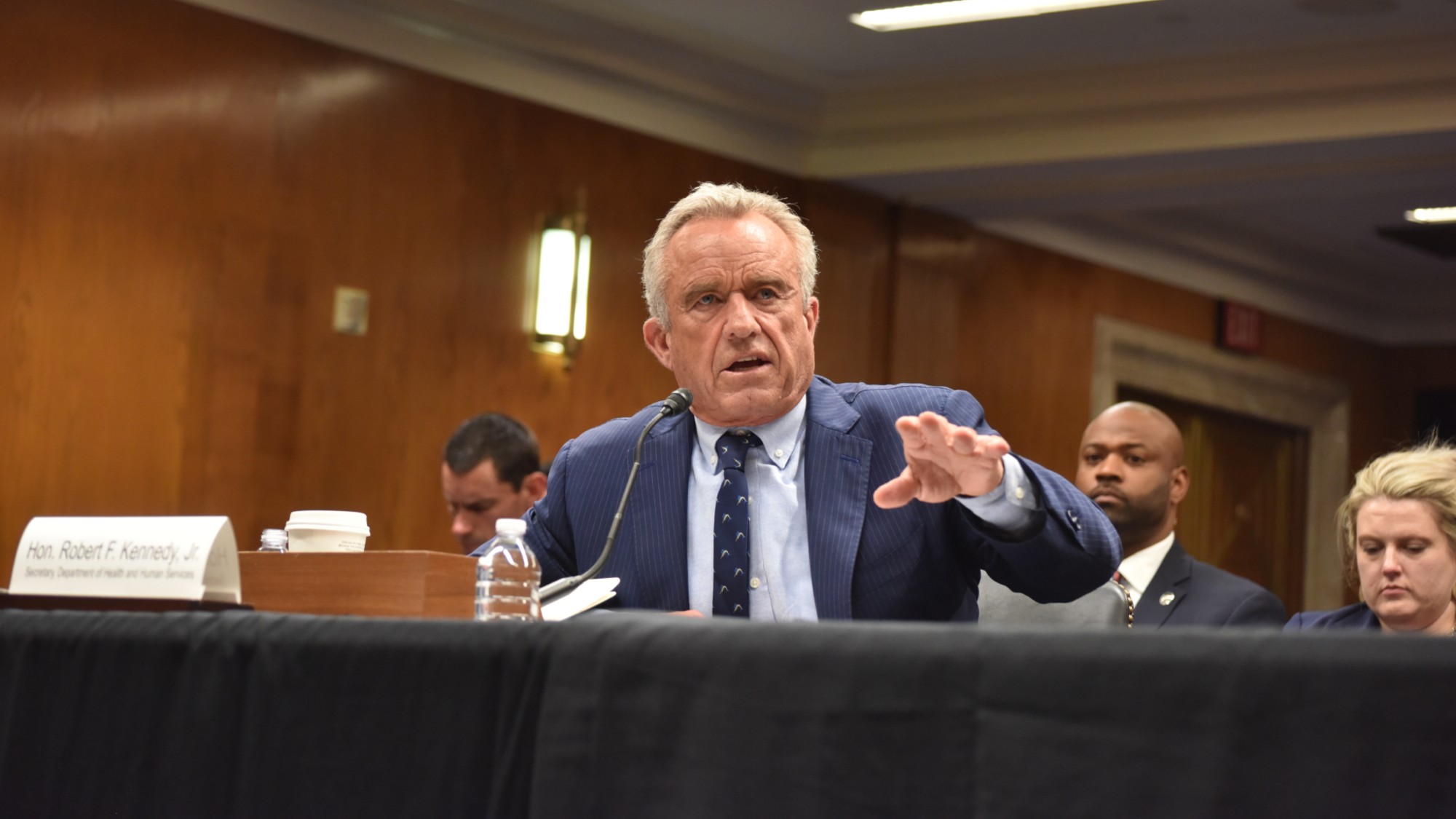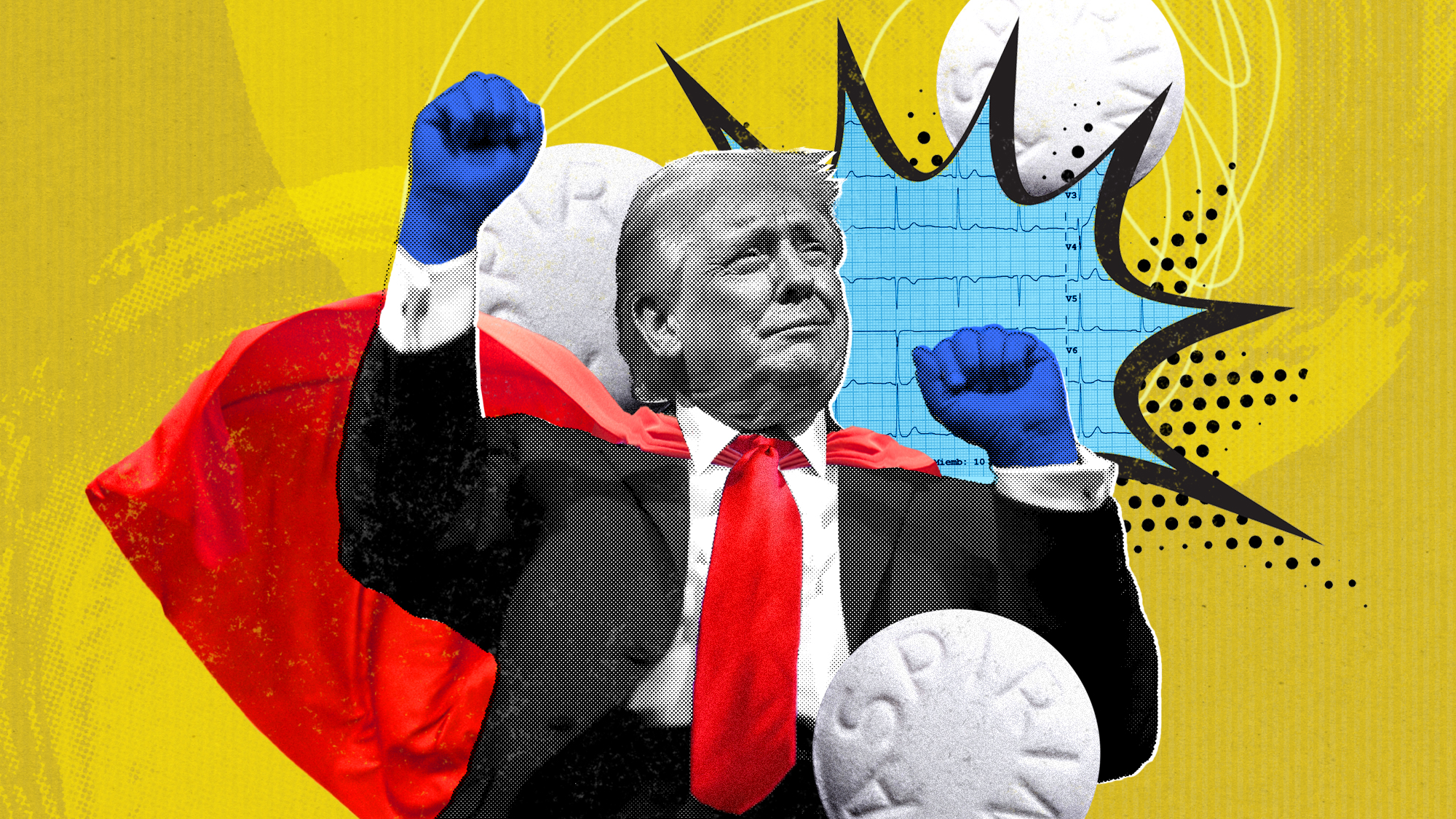Experts are split on the findings in RFK Jr.'s 'MAHA' report
The HHS secretary's report targeted processed foods and vaccines, among other things


A free daily email with the biggest news stories of the day – and the best features from TheWeek.com
You are now subscribed
Your newsletter sign-up was successful
Health and Human Services Secretary Robert F. Kennedy Jr. has released the first major report for his "Make America Healthy Again" platform, and it has provided some insight into where he wants to focus the agency. RFK Jr. has pledged to make sweeping changes to the country's health care system, but not everyone agrees with the report's conclusions.
Targeting processed foods and vaccines
The full report describes various factors that it claims cause chronic illnesses in American children. It lays out "some of the most contentious views on vaccines, the nation's food supply, pesticides and prescription drugs," said The Associated Press. Some of the report's main findings include calling for an "increased scrutiny of the childhood vaccine schedule, a review of the pesticides sprayed on American crops and a description of the nation's children as overmedicated and undernourished."
The report came at the behest of President Donald Trump, who tasked RFK Jr. and the Department of Health and Human Services with "investigating chronic illness and delivering an action plan to fight childhood diseases, starting with a report," said USA Today. The report blames "ultra-processed foods, environmental chemicals, lack of physical activity, chronic stress and 'overmedicalization'" for chronic diseases. It also claims this is "partly propelled by corporate influence and government lobbying."
The Week
Escape your echo chamber. Get the facts behind the news, plus analysis from multiple perspectives.

Sign up for The Week's Free Newsletters
From our morning news briefing to a weekly Good News Newsletter, get the best of The Week delivered directly to your inbox.
From our morning news briefing to a weekly Good News Newsletter, get the best of The Week delivered directly to your inbox.
The "proposition that nutrition, lifestyle and exposure to pollution and other harmful chemicals are conspiring to harm children's health is not controversial among longtime researchers in public health," said NPR. But the report "doesn't resolve some of the central tensions that have characterized Kennedy's MAHA platform from the outset." It also doesn't weigh in socioeconomic factors like poverty levels, which are a "key predictor of chronic disease."
'New regimen of standards'
The "MAHA" report is "likely to face diverse pushback," especially from "agricultural and chemical lobbyists wary of how the report would criticize their products," said The Guardian. This could put the agricultural industry at odds with the Trump administration. Bringing up concerns over chemical additives in farming is "sure to make for strange political bedfellows and consternation within the Republican Party."
Both agricultural lobbyists and politicians have already raised doubts about the report. There is "enough in the report to cause plenty of worry about how key crop protection tools will be regulated in the future," said Sen. Cindy Hyde-Smith (R-Miss.) in a statement, adding that the report could "set the stage for a new regimen of standards based on fringe theories."
Given that the report calls into question vaccine schedules and pharmaceuticals that have been "deemed safe by mainstream medicine," it "also stretched the limits of science," said The Washington Post. Large chunks of the report "offer misleading representations of findings in scientific papers." Gun violence, which the CDC cites as the leading cause of death for children in 2020 and 2021, was "not mentioned in the report."
A free daily email with the biggest news stories of the day – and the best features from TheWeek.com
There is "little biological basis to argue" vaccine regimens "could be harming children by overwhelming their immune systems," said Jason Schwartz, a Yale University associate professor of public health, to the Post. Now, doctors are "seeing a very familiar playbook" from the "highest levels of our government's health agencies rather than the margins of the anti-vaccine conversation."
Justin Klawans has worked as a staff writer at The Week since 2022. He began his career covering local news before joining Newsweek as a breaking news reporter, where he wrote about politics, national and global affairs, business, crime, sports, film, television and other news. Justin has also freelanced for outlets including Collider and United Press International.
-
 How the FCC’s ‘equal time’ rule works
How the FCC’s ‘equal time’ rule worksIn the Spotlight The law is at the heart of the Colbert-CBS conflict
-
 What is the endgame in the DHS shutdown?
What is the endgame in the DHS shutdown?Today’s Big Question Democrats want to rein in ICE’s immigration crackdown
-
 ‘Poor time management isn’t just an inconvenience’
‘Poor time management isn’t just an inconvenience’Instant Opinion Opinion, comment and editorials of the day
-
 Kurt Olsen: Trump’s ‘Stop the Steal’ lawyer playing a major White House role
Kurt Olsen: Trump’s ‘Stop the Steal’ lawyer playing a major White House roleIn the Spotlight Olsen reportedly has access to significant US intelligence
-
 ICE eyes new targets post-Minnesota retreat
ICE eyes new targets post-Minnesota retreatIn the Spotlight Several cities are reportedly on ICE’s list for immigration crackdowns
-
 ‘This is something that happens all too often’
‘This is something that happens all too often’Instant Opinion Opinion, comment and editorials of the day
-
 ‘My donation felt like a rejection of the day’s politics’
‘My donation felt like a rejection of the day’s politics’Instant Opinion Opinion, comment and editorials of the day
-
 Gavin Newsom and Dr. Oz feud over fraud allegations
Gavin Newsom and Dr. Oz feud over fraud allegationsIn the Spotlight Newsom called Oz’s behavior ‘baseless and racist’
-
 Democrats win House race, flip Texas Senate seat
Democrats win House race, flip Texas Senate seatSpeed Read Christian Menefee won the special election for an open House seat in the Houston area
-
 A running list of everything Donald Trump’s administration, including the president, has said about his health
A running list of everything Donald Trump’s administration, including the president, has said about his healthIn Depth Some in the White House have claimed Trump has near-superhuman abilities
-
 Businesses are caught in the middle of ICE activities
Businesses are caught in the middle of ICE activitiesIn the Spotlight Many companies are being forced to choose a side in the ICE debate
